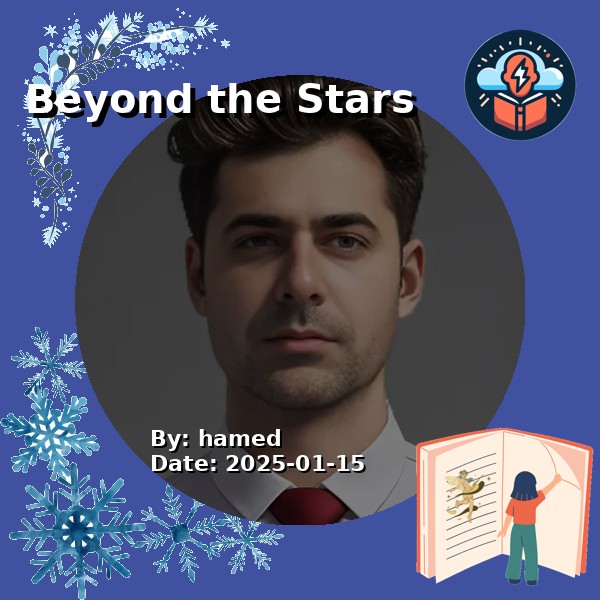Peter Lawson sat at his desk in the cluttered NASA lab, eyes bloodshot from hours spent scrutinizing calculations and blueprints. The hum of the machines around him was constant, a steady reminder of the giant leap they were all trying to make. Apollo was no longer just a dream—it was real, a mission that would send men to the moon and bring them home. But the weight of it pressed against him like the gravity they were trying to defy.
He ran a hand through his graying hair, staring at the latest telemetry readings on his screen. There were still so many things to solve—fuel mixtures, heat shields, trajectory corrections. It was never enough. The math was unforgiving.
“Pete,” called a voice from the doorway. It was his wife, Carol. She stood there, holding a cup of coffee, her eyes tired but warm.
“I’m sorry,” he muttered, wiping his brow. “I’ll be out in a minute. Just have to finish this—”
She stepped closer, setting the coffee down on his desk. “You've been at it for weeks. The kids miss you. I miss you."
Peter’s fingers hovered over the keyboard, but he didn’t type. He glanced at Carol, her face marked with concern. He hadn’t even noticed how much time had passed—how the weeks bled into months, how his son had grown an inch or two without him noticing.
“I know,” he said softly. “But this is important. I can’t afford to let up. We’re on the verge of something... monumental. The future of humanity is in our hands.”
Carol crossed her arms, her voice steady but full of a quiet sadness. “And what about us, Pete? What about your future with us? I’m proud of what you're doing, but I need you here. The kids need you here.”
Peter closed his eyes for a moment. He could hear the excitement in her voice, but there was also a thread of pain, one he’d been ignoring for too long. The Apollo program was more than just a job—it was a mission, a calling, a chance to be part of something bigger than himself. Yet, as the years passed, he found that he was losing pieces of himself along the way.
“You think I don’t see it, Carol?” he said, his voice tinged with frustration. “I know I’m not here. But when I look at that rocket, when I see those astronauts in their suits, I know that every sacrifice—every sleepless night—is worth it. We’re doing something no one has ever done. We're making history.”
“I understand that,” she replied quietly. “But history won’t remember how much you missed. It won’t remember the moments you weren’t here for.”
Peter stood up, the weight of her words settling over him like a heavy cloak. He didn’t want to face it, but the truth was undeniable. For all the ambition and innovation, for all the breakthroughs, there was a cost. And that cost wasn’t just paid by the engineers and astronauts—it was paid by the families, the loved ones left behind in the name of progress.
He walked over to the window, looking out over the vast stretch of the Johnson Space Center. The bright lights of the launch pads blinked in the distance, a symbol of their aspirations, of the future they were building. But what was it for if he couldn’t share it with the people he loved?
“I’m sorry,” he said, his voice softer now. “I’ve been blind, Carol. I’ve been so focused on the mission that I forgot there’s a mission right here—one with you and the kids.”
She reached out, her hand resting gently on his arm. “I’m proud of you, Pete. I always will be. But you don’t have to sacrifice everything to reach the stars. You can still hold on to what matters most.”
As the lights of the launch pads flickered like distant stars, Peter made a choice. The moon would still be there. The Apollo missions would continue. But this—this moment, this family—was the mission he had to focus on now. The stars would wait, but his legacy wouldn’t be built just on what he achieved in space. It would be built on the people he loved, the moments he cherished, and the sacrifices they all made, together.
